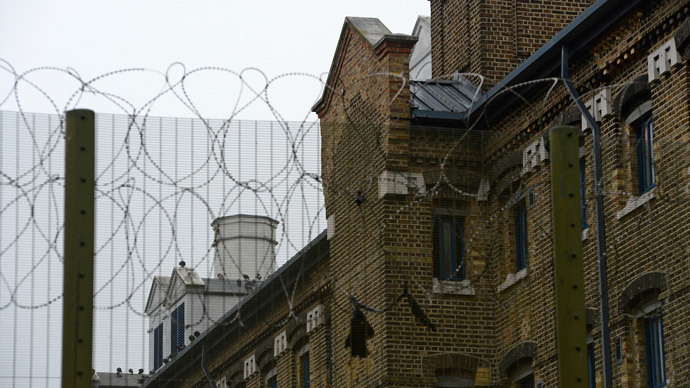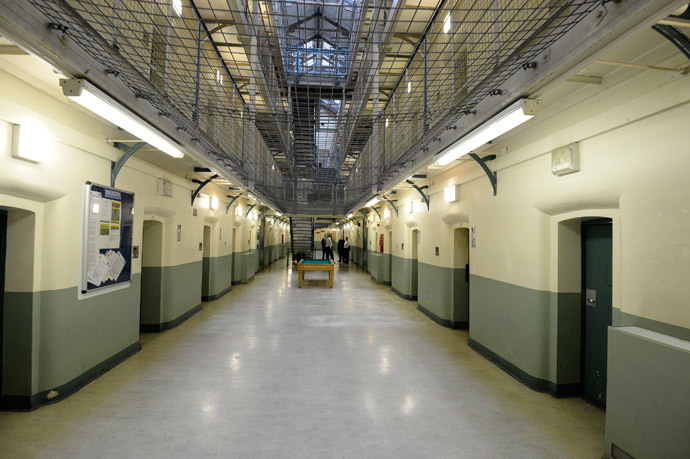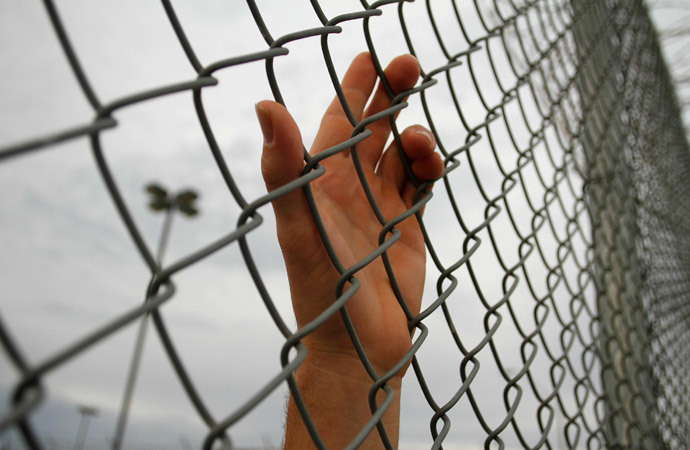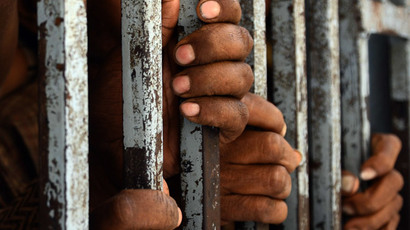‘Death trap’ prisons: UK government policy ‘responsible’ for soaring inmate suicides

Staff shortages and acute overcrowding in Britain’s prisons are so serious they are fuelling a rise in suicides amongst UK inmates, the Chief Inspector of Prisons warns.
Chief Inspector Nick Hardwick told the Independent on Tuesday it was simply “not credible” for the coalition government to refute a direct link between mounting pressures on Britain’s prison system and a dramatic increase in suicides.
Hardwick’s intervention compounds heated criticism which has been directed at the UK’s Justice Secretary, Chris Grayling, over his mishandling of the prison system, amid accusations that jails throughout Britain have evolved into “death traps” as a result of stark budgetary cuts.
Commenting on the crisis, Hardwick said that self-inflicted prison deaths were “not acceptable in a civilized country,” and warned if UK ministers wanted the population in British jails to rise, concrete “resources to deal with that rise” must be employed.
His comments precede a special report conducted by the Prisons and Probation Ombudsman (PPO) due to be published on Wednesday, which examines cases of suicides by 18- to 24-year old inmates. The report was commissioned following mounting calls for a growing trend in self-inflicted deaths among Britain’s prisoners to be investigated and addressed.
In the year to March 2014, 88 people committed suicide in prisons throughout England and Wales – a startling rise of 41 percent on the previous 12 months. And this sobering rise in inmate suicides is showing no signs of slowing down. Since January alone, 44 people took their own lives in British prisons, while incidents related to self-harm reached 23,478 this year – an increase of 750 since 2012-13.

Further statistics documented by the Ministry of Justice reveal that assaults against prison staff have also risen by 10 percent in the past year.
Following two suicides in one particular prison facility, Hardwick arrived to conduct an inspection on the institution. Despite his overt warning to the prison’s management that the establishment was “unsafe,” a further two people took their lives after his visit.
Hardwick claims there has been a categorical “deterioration” in safety levels of British prisons over the past year. “The reasons why any individual who is despairing tips over into a suicide are very diverse,” he said.
“But if you put together the lack of staffing levels, the overcrowding, the lack of activity, then I don’t think it is credible to deny that those are contributory factors.”
A spokesperson for Britain’s Prison Service told the Independent that staffing levels in UK jails always have been and always will be sufficient to “deliver safe and effective prison regimes." The spokesperson went on to claim that Britain’s prisons are characterized by high levels of “mental health issues,” and that the Prison Service is currently working hard to discern the recent “fluctuations” in suicides. Reducing current levels of self-inflicted deaths is a “key priority” for the Prison Service, the spokesperson said.
‘Wholesale reform needed’
Meanwhile, a spokesperson for the Prisons and Probation Ombudsman (POO), an independent body that investigates complaints of prisoners and probationers throughout Britain, told RT on Tuesday that there is currently no “cast iron mass of evidence” which explains the stark rise in prisoner suicides Britain has experienced over the past year.

“Investigations are currently being conducted” with respect to these self-inflicted deaths, she said, but no concrete conclusion has been reached by the PPO as the “evidence is inconclusive at this stage”.
Frances Crook, chief executive of the Howard League for Penal Reform, echoed Harwick’s view, however, emphasizing that “[g]overnment policy has led to people dying unnecessarily.”
Harwick’s criticism follows acute concern recently expressed by Shadow Justice Secretary Sadiq Khan, over a rising wave of assaults, murders and suicides throughout Britain’s prisons.
Prison governors across the country have repeatedly warned that British jails are struggling to deal with increasingly crowded conditions, with a record prison population of over 85,000 in 2014. Budgets cuts of almost 25 percent over the past three years have also compounded matters, the governors warn.
Inside Britain's prisons: Rising violence and soaring suicide rates
Professor Roger Matthews, a criminologist with a special focus on British prisons and penal policies who lectures at Kent University, believes the stark rise in suicide rates in UK jails is indicative of deep structural problems within Britain's prison system.
The only real route to effective reform of the prison system is to reimagine what the “role of the prison in 21st century Britain should be,” Matthews says. “The government are currently tinkering around the edges of a fundamentally flawed system.”
Matthews argues the entire prison system must be comprehensively revised from the ground up - a move that requires the government to “engage in a radical rethink of the policies they currently employ.”














